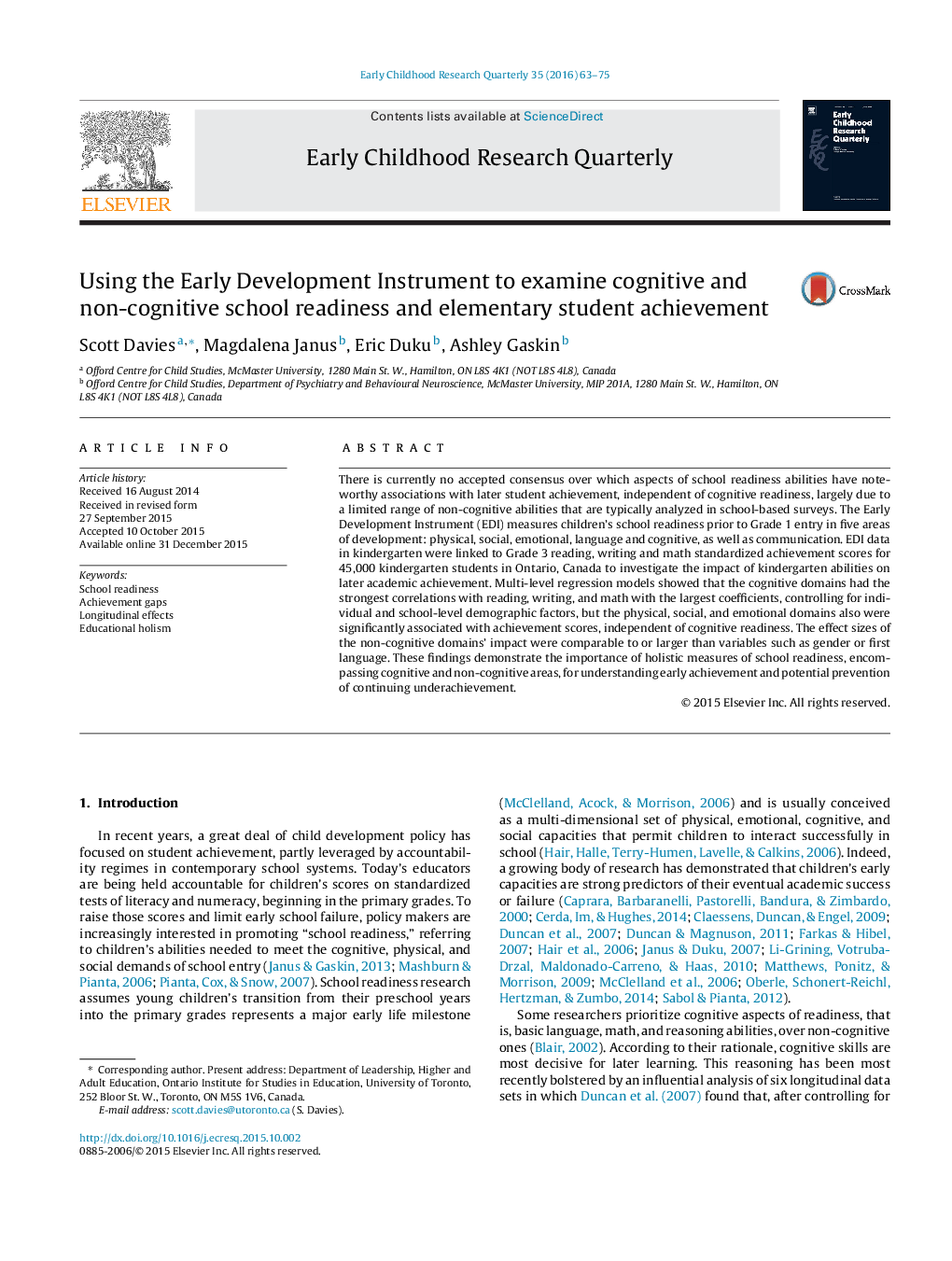| Article ID | Journal | Published Year | Pages | File Type |
|---|---|---|---|---|
| 6840731 | Early Childhood Research Quarterly | 2016 | 13 Pages |
Abstract
There is currently no accepted consensus over which aspects of school readiness abilities have noteworthy associations with later student achievement, independent of cognitive readiness, largely due to a limited range of non-cognitive abilities that are typically analyzed in school-based surveys. The Early Development Instrument (EDI) measures children's school readiness prior to Grade 1 entry in five areas of development: physical, social, emotional, language and cognitive, as well as communication. EDI data in kindergarten were linked to Grade 3 reading, writing and math standardized achievement scores for 45,000 kindergarten students in Ontario, Canada to investigate the impact of kindergarten abilities on later academic achievement. Multi-level regression models showed that the cognitive domains had the strongest correlations with reading, writing, and math with the largest coefficients, controlling for individual and school-level demographic factors, but the physical, social, and emotional domains also were significantly associated with achievement scores, independent of cognitive readiness. The effect sizes of the non-cognitive domains' impact were comparable to or larger than variables such as gender or first language. These findings demonstrate the importance of holistic measures of school readiness, encompassing cognitive and non-cognitive areas, for understanding early achievement and potential prevention of continuing underachievement.
Related Topics
Social Sciences and Humanities
Psychology
Applied Psychology
Authors
Scott Davies, Magdalena Janus, Eric Duku, Ashley Gaskin,
